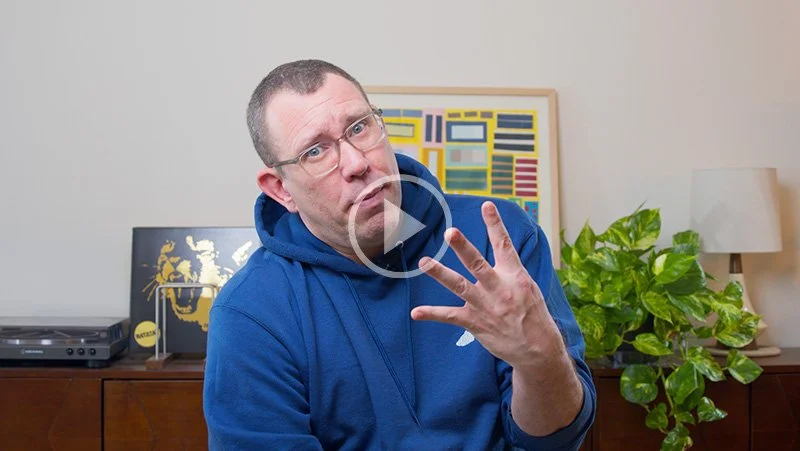If You Feel Something, Say Something
Welcome to the #culturedrop. Every Tuesday, Galen Emanuele emails tools to advance leadership skills, team culture, and personal growth. No spam, just great content. Sign up now to get it in your inbox.
Feel Something? Say Something.
One of the simplest ways to cut through unnecessary stress, tension, and confusion at work or in life is by getting more comfortable with just “saying the thing.” If something feels off, bring it up. If you're not sure what someone meant by a comment or decision, ask. When you feel something, say something.
The narratives we build.
We’re all constantly writing little scripts in our heads to make sense of the world. Why wasn’t I included on that call? Why didn’t they respond to my message? Why did they give that feedback in front of everyone?
“Often humans are great at stewing in their assumptions, sometimes as far as reacting as though they were absolutely true instead of going to the source and getting clarity.”
More often than is ideal, our brains jump to the worst-case scenario: They don’t like me, they don’t trust me. I messed something up.
And yet, if you surface the conversation and actually ask the other person what was going on and for clarity around the situation, it’s usually something far less dramatic. Maybe they were in a rush. Maybe they thought someone else had looped you in. Maybe they just didn’t realize it mattered to you, or that it would impact you in a way that ruffled your feathers.
Often humans are great at stewing in their assumptions, sometimes as far as reacting as though they were absolutely true instead of going to the source and getting clarity. And that tension can be brought into the next meeting, the next project, the next interaction, and affect the relationship overall.
Clear the air sooner.
This is where the power of a quick, respectful check-in comes in.
If something’s bothering you, whether it’s confusion, hurt, or just a weird gut feeling, it’s so much better to say something than let it fester. Not in an accusatory way, not in a high-drama way, just a simple:
“If something’s bothering you, whether it’s confusion, hurt, or just a weird gut feeling, it’s so much better to say something than let it fester.”
“Hey, can I check in with you about something real quick? I noticed X and found myself wondering if Y. I figured I’d bring it up and check in with you in case I’m way off base.”
Nine times out of ten, the discovery is that there was no bad intent, just a misunderstanding or oversight.
And by asking, you provide a chance to talk it through, correct any assumptions that were made, and clear the air. You stop the narrative spiral before it spins any further. You open up space for honesty and real connection as well because navigating real, uncomfortable conversations can help build trust and rapport. Especially if you do it well.
Create a culture where it's safe to speak up.
Of course, this kind of communication only works when it's safe to do so.
That means creating team dynamics and intentional ground rules where people are encouraged to speak up when something feels off. Where emotional honesty is welcomed, not punished.
Where we don't jump to defensiveness when someone brings up an issue. Instead, we listen, clarify, and thank them for bringing it up because it can take a lot of courage to address something gently and at the source instead of avoiding the conversation or stewing in inaccurate narratives.
This doesn’t mean over-analyzing every interaction or processing every emotion out loud. It just means being honest, early, and respectful when something’s on your mind — before it becomes a bigger issue.
“Don’t let assumptions build up or turn into big stories. Just speak up — with care and respect.”
Less static, more clarity.
You can save yourself and your team so much unnecessary stress by normalizing this kind of honest check-in. Don’t let assumptions build up or turn into big stories. Just speak up — with care and respect, and with the grace that even if bad feeling were caused that it likely wasn’t the intention for the other person to cause them intentionally.
When you clear the air, you clear the path for better relationships, smoother communication, and a lot less mental noise.
Want more?
This article was created by Galen Emanuele for the #culturedrop. Free leadership and team culture content in less than 5 minutes a week. Check out the rest of this month's content and subscribe to the Culture Drop at https://bit.ly/culturedrop








